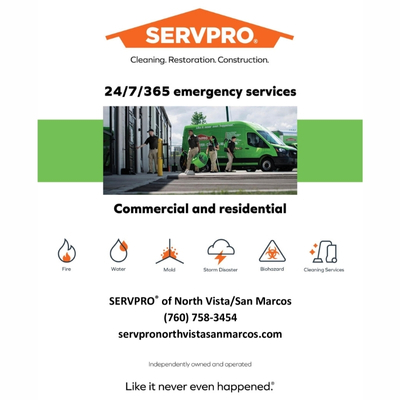September is National Courtesy Month, so we’d like to take a minute to encourage you to treat everyone with respect. This includes the time we spend behind the wheel. Why can’t we all just get along?
Many of us have had to deal with aggressively impolite drivers – people who tailgate, cut you off, lay on their horns and make inappropriate hand gestures as they speed past you in an expression of displeasure for whatever inconvenience they perceive that you’ve caused them. “Displays of aggression on the road are becoming an all-too-common occurrence,” says Kevin Quinn, vice president of claims and customer experience at Mercury Insurance. “People who engage in these driving behaviors aren’t focused on the wellbeing of others – they don’t stop to think about how dangerous their actions are and that they’re putting themselves and those around them in danger.”
More people on the roads = aggression
Aggressive driving has become more prevalent as the population and number of licensed drivers grows and traffic congestion continues to increase. According to a report compiled on aggressive driving by The Zebra , aggressive driving is a rampant problem that contributed to 467 fatal car collisions in 2015.
So what exactly is “aggressive” driving? The National Highway Traffic Safety Administration (NHTSA) defines aggressive driving as “a combination of moving traffic offenses so as to endanger other persons or property.”
Moving traffic offenses include:
• Speeding
• Unsafe lane changes or passing on the right
• Following too closely
• Failure to yield
• Disregard of traffic control devices
• Reckless driving
• Failure to signal.
Two or more of these actions coupled together are considered a display of aggressive driving. According to a 2017 report issued by NHTSA, aggressive driving continues to play a substantial role in traffic accidents. In fact, 67 percent of people surveyed in another NHTSA study on dangerous driving felt that their safety was threatened by other drivers.
Road rage
While aggressive driving is a traffic offense, road rage – which NHTSA defines as the assault of a fellow motorist or their passengers with a vehicle or weapon – is a criminal offense. Fifteen states have passed laws to discourage aggressive driving and road rage: Arizona, California, Delaware, Florida, Georgia, Indiana, Maryland, Nevada, New Jersey, North Carolina, Pennsylvania, Rhode Island, Utah, Vermont and Virginia. Seven of these states have specific provisions regarding harassment, intimidation, the creation of hazards, general lack of concern for the safety of others and the intent to injure other motorists. One state – Indiana – includes a clause about the unnecessary or excessive use of horns. “Unfortunately, we can’t control the actions and reactions of other drivers,” Quinn said. “But, what we can do is meet road rage with anti-rage. Keeping your cool and ignoring the rude behaviors of others can help curb road rage and reduce risk, diffusing otherwise volatile traffic situations.”
The golden rule of driving
The NCHRP report mentions that frustration contributes to aggressive driving behavior. Drivers who experience frustration are more likely to project elevated levels of aggression triggered by contextual factors, such as the driver’s psychological disposition and traveling environment. Practicing common courtesy on the road can go a long way. Instead of feeding into the rage of others, try implementing the golden rule: treat other drivers the way you would like to be treated. Resist the urge to honk your horn or brake check tailgaters, obey traffic laws and remain courteous when faced with angry motorists.
“National Courtesy Month is a great way to encourage people to think of others as they go about their daily lives,” Quinn said. “If you drive, you will encounter traffic and bad drivers, but rather than letting it get to you, try taking a deep breath and thinking about getting home safely to your family. It tends to put things in perspective.”

Practice anti-rage
Put your best foot forward and practice some of these anti-rage techniques when on the road:
• Be mindful of those around you. Be considerate of other drivers, obey traffic laws and don’t switch lanes without using a turn signal. Check your blind spots and avoid cutting people off.
• Think before you act. Before honking your horn or making a rude gesture in traffic, snuff the reaction. You never know the mentality of other drivers and these actions can escalate an otherwise harmless situation into a dangerous game of roadway retaliation.
• Don’t brake check tailgaters. Brake checking other vehicles can lead to accidents. Be patient and move over to let the tailgater pass.
• Don’t challenge other drivers on the road. Be courteous and allow merging cars into your lane. Don’t engage in speed wars or attempt to race other drivers.
• Avoid aggressive drivers when possible. Steer clear of aggressive drivers on the road. Give them distance and don’t get in their path of travel.
•
Don’t talk on your cell phone while driving. Aside from the fact that this is illegal in many states, it takes your attention off of the road and may upset the drivers with whom you share the road.
• Report aggressive drivers. If you feel that a driver is a threat to others on the road, take down their license plate number and call 911 to report them to the local authorities.
These tactics can help you avoid collisions while you’re on the road, but there are times when accidents are simply out of your control. Even courteous drivers can find themselves dealing with a fender bender on the roadside. Familiarize yourself with your insurance company’s claims process, so you’re prepared and know what to do in the event of an accident.
To learn more about protecting yourself and your auto contact Tague Insurance Agency
https://www.mercuryinsurance.com/resources/drive-safe/dont-drive-angry.html
About Us
Tague Insurance Agency is an independently owned and locally operated insurance agency in Vista, California. We help people across the state find affordable and reliable insurance products from a variety of trusted carriers. As an independent agency, we can help you find the perfect combination of coverage and price to fit your unique needs.
What Does Independent Mean?
“Independent” means we’re not tied to any one insurance carrier. In other words, we can research rates and coverage options from several top insurance companies to find the best policies for you. We do the shopping and comparing to save you time and money!
How to Get in Touch
We invite you to submit a free online quote request or call us at 760-729-1143 to review coverage options for auto, home, life, health, business, and more. We provide free, no hassle and no obligation insurance quotes to help you make an informed decision.

















